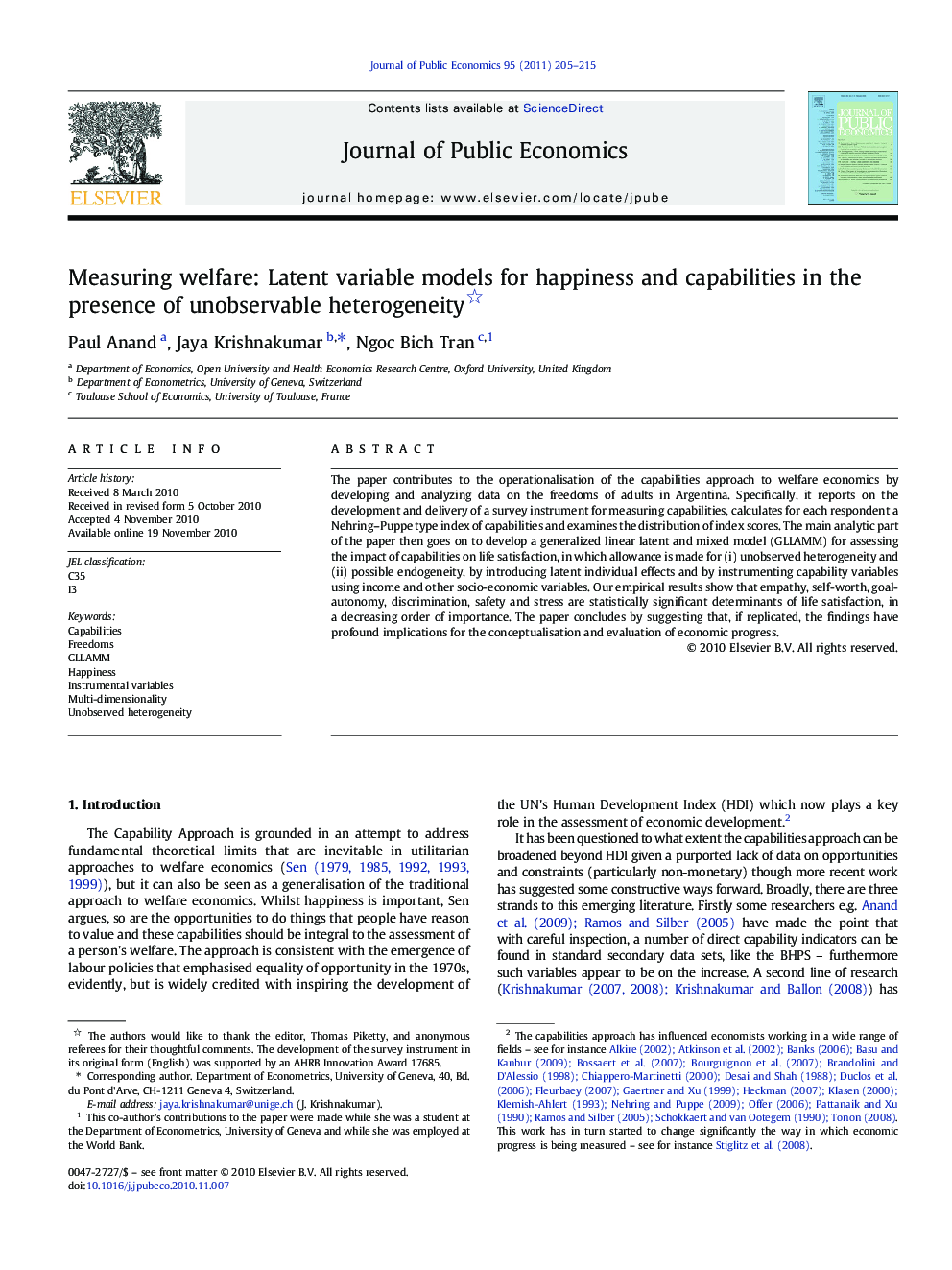| Article ID | Journal | Published Year | Pages | File Type |
|---|---|---|---|---|
| 969774 | Journal of Public Economics | 2011 | 11 Pages |
The paper contributes to the operationalisation of the capabilities approach to welfare economics by developing and analyzing data on the freedoms of adults in Argentina. Specifically, it reports on the development and delivery of a survey instrument for measuring capabilities, calculates for each respondent a Nehring–Puppe type index of capabilities and examines the distribution of index scores. The main analytic part of the paper then goes on to develop a generalized linear latent and mixed model (GLLAMM) for assessing the impact of capabilities on life satisfaction, in which allowance is made for (i) unobserved heterogeneity and (ii) possible endogeneity, by introducing latent individual effects and by instrumenting capability variables using income and other socio-economic variables. Our empirical results show that empathy, self-worth, goal-autonomy, discrimination, safety and stress are statistically significant determinants of life satisfaction, in a decreasing order of importance. The paper concludes by suggesting that, if replicated, the findings have profound implications for the conceptualisation and evaluation of economic progress.
Research Highlights► Measurement of adult capabilities via a new survey instrument and unique data. ► A structural latent variable model to evaluate impact of capabilities on happiness. ► Model allows for endogeneity of capabilities and individual heterogeneity. ► Allows for personality effects. ► Highlights novel determinants of happiness.
